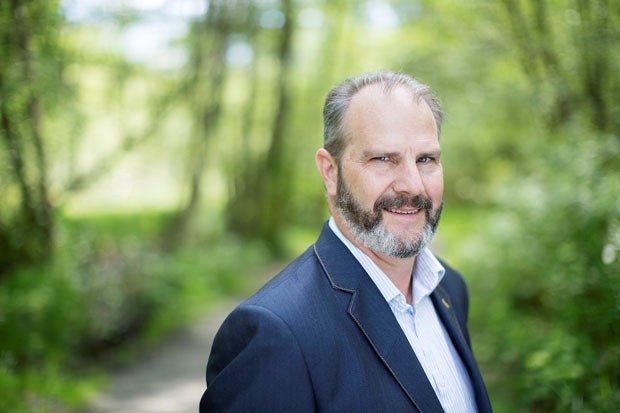Randy Anderson-Fennell is one of the Delta school trustee candidates running in this month's civic election. Here are his responses to a questionnaire from the Optimist:
1. Bio – Tell readers a bit about yourself and why you are running for office.
A resident of Delta for eight years and an electrician in the Surrey school district for 11 years, I have seen first hand how public education cuts hurt classrooms. I am committed to public education and I believe my experience with education policy working alongside staff and management in B.C.'s largest school district has prepared me for this office.
2. Most pressing issue – What issue are you most passionate about and what action will you take on it?
The safety and inclusivity of our school district is paramount. Studies routinely show that safe and inclusive learning environments contribute to positive student outcomes. In other words, students learn better when their social and emotional needs are met. This is one of the lenses that should guide the board’s decision-making process. I will work to ensure students are well-supported in the classroom and have the most enriching educational experience possible.
3. The Delta school board has been able to bring additional per-pupil funding and revenues by attracting out-of-district students to Delta’s specialty academies. Should these programs be made free for Delta residents without having to apply for special exemptions?
Delta’s academies are relevant and engaging. They are the examples of the innovation and commitment of district educators, and should thus be as accessible as possible to Delta students. Students with the potential, desire and aptitude to succeed in an academy should not be prevented from doing so by a lack of financial means. Financial aid is already in place for students wishing to attend an academy program. This should continue in a way that respects families and honours the district’s mandate to ensure all learners have every opportunity to achieve success. Delta’s academies are just one aspect of a diverse and progressive overall curriculum that prepares students to succeed in our ever-changing world.
4. The district has seen steady increases in the number of students from other countries in the International Student Program. By 2016/17 revenue climbed to just over $10 million. Part of that money has now gone into offsetting budget deficits. Do you support using those revenues for the operating budget and, if not, where should those monies be targeted?
International student enrolment is a Ministry of Education mandate. Almost four out of 10 international students who graduate from a B.C. high school move on to a B.C. post-secondary school within a year. According to the province’s International Education Strategy (2015), 12,000 of the province’s 94,000 international students attend K-12 in a public or private school. These figures continue to grow and provide a revenue stream that not only assists with the costs of international education but helps to enrich the experiences of domestic learners. Domestic students also benefit from classroom diversity and exposure to students whose language, cultures, customs and even world views are dissimilar from their own. All of this is to say that international students help enrich our school environments. However, revenue from international enrolments should not be used to fund ongoing operational costs, except those operational costs that are directly related to the support of international programming, or perhaps even one-time expenditures. The predictability of international enrolment is not assured, and therefore it would be irresponsible to dedicate these monies to ongoing expenditures such as those covered by the operating budget.
5. The school board is proposing to work out a land deal with the City of Delta to build a new track facility in North Delta. Many other schools in the district will still be without upgraded tracks. Do you feel corporate sponsorship may be a possibility or are there other options you believe can be explored?
The district should tread lightly when it comes to corporate sponsorship. While I respect the authenticity of companies and corporations that have prioritized corporate social responsibility as part of their mandates, I also believe that a well-funded, well-managed school district shouldn’t need to rely on such a funding stream. This is particularly important when it comes to the exposure of our youngest students to certain brands or products. There are other ways to leverage additional support without blunt corporate influence. For example, excellent non-profit organizations like the United Way receive corporate funding. In 2016, the United Way delivered 45 programs and served more than 1,300 children and teens in Delta in 2016.
6. As a candidate for trustee, please explain the role of trustee and explain why you among all of these other candidates should be elected to it.
On paper, Delta trustees establish administrative policies and regulations in the district. But it’s a lot more than that. For me, being a trustee will allow me to contribute meaningfully to student success and the positive working and learning environments of students, teachers and support staff. I am passionate about the role of public education and see it as the basic bedrock of our society. I have experience working with trustees, senior management, teachers and support workers, and have intimate knowledge of how all the pieces come together to allow our school doors to open every morning. As a trustee, I will advocate for safe and inclusive schools, fully funded classrooms that meet the needs of all learners, and respect for and collaboration with our partners in education.



